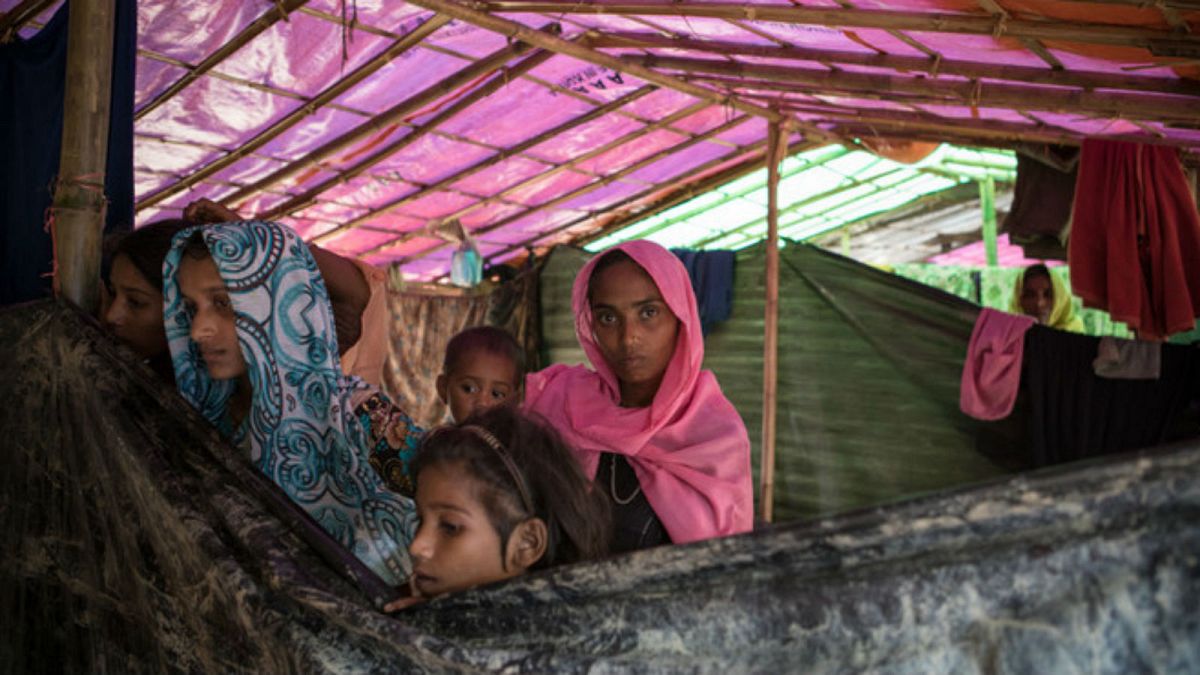Children are on the frontline of this crisis and they need help urgently, writes Mike Novell
By Mike Novell, Save the Children
What could possibly spark an exodus of more than 430,000 people from their homes, from their country, in just a few weeks?
Attacks on entire villages, murder and rape. These are the atrocities Rohingya children, who make up more than half of the new arrivals in Bangladesh, have told our staff in Cox’s Bazar caused them to flee Myanmar’s Rakhine State.
Ten-year-old Sharifa says she lost her parents in the conflict, which erupted on 25 August and tore her world apart.
“The army shot and slaughtered people. They came to my village to kill people, and they shot my mother and father. I ran away from my house and hid in a bush – I waited for a day there. The next morning when I saw people coming past, I joined the crowd and started walking with them.”
The massive influx of refugees reminds me of the early 1980s, when I was a fresh-faced aid worker helping Vietnamese refugees who arrived in Indonesia by sea.
My organisation, Save the Children, provided services inside the formal refugee camps, but our staff would often end up at the beaches waiting to help the boats as they came in. I can still remember the sight of fishing boats jam-packed with refugees landing onshore, one after another, and the scared faces.
There were always large numbers of children.
More than 30 years later, and yet another refugee crisis is unfolding before the world’s eyes, with children once again at the forefront of the disaster.
Children like 15-year-old Kabir, who also shared details of her horrific ordeal.
“We ran out of our house hearing the army might be nearby. A few minutes later, I looked back to see my house burning. I couldn’t save my mother. She was sick and couldn’t move out of the house.”
Kabir is now living in a makeshift camp after walking for 13 days with her brother: “We just have a few clothes now, and no house and no food.”
Sharifa and Kabir are part of a group of at least 1,500 children who have been separated from their families, either through violence or in the panic of escape.
Save the Children is supporting many of these children by setting up safe spaces in camps in Bangladesh’s Cox’s Bazar district, providing interim care while attempts are made to find living family members. These children are incredibly vulnerable, and are at increased risk of exploitation, abuse and trafficking.
Local communities have been extremely accommodating, often sharing precious food and water.
But the sheer speed and scale of the displacement has put more pressure on already stretched host communities. Chaos reigns, people are desperate and heavy rain continue to fall frequently.
Aid agencies like Save the Children are coordinating closely with the government while working around the clock to help the new arrivals, who are often exhausted and hungry after travelling for many days. We’ve distributed tarpaulins and ropes, kitchen utensils and hygiene kits, and set up spaces for children to play and be safe.
But it’s not enough. There is an urgent need for more shelter, food, clean drinking water, hygiene and sanitation support.
And we need to help traumatised children rebuild their lives by providing psychological support and, critically, education.
Governments across the globe have a role to play in protecting and supporting those who have fled Myanmar or been displaced from their homes.
We urge the Myanmar security forces and all parties to the conflict in northern Rakhine State to end the violence, ensure the protection of civilians, especially children, and allow unhindered humanitarian access. When it’s safe to do so, those who wish to return must be given the right to do so.
We welcome the Bangladesh Government’s efforts so far to provide a haven for hundreds of thousands of Rohingya, as well as their work to scale up the humanitarian response.
Governments around the world must recognise the scale of this crisis by funding the humanitarian response. Some have already contributed generously, however much more is required given the rapidly growing needs. And they must also continue to use diplomatic means to ensure children are protected.
The hell children like Sharifa and Kabir continue to endure is unfathomable to many of us, and it’s easy to be overwhelmed by the scale of need.
But we owe it to children like them to do everything in our power to stop the violence in Rakhine State and find a peaceful, long-term solution to the crisis. In the meantime we must rapidly step up humanitarian assistance and ensure everyone’s basic needs are met.
We must do all we can to give a generation of Rohingya children the future they deserve.
Children’s names have been changed to protect their identities
Mike Novell is Save the Children’s Asia Regional Director.
The opinions expressed in View articles do not represent those of Euronews
